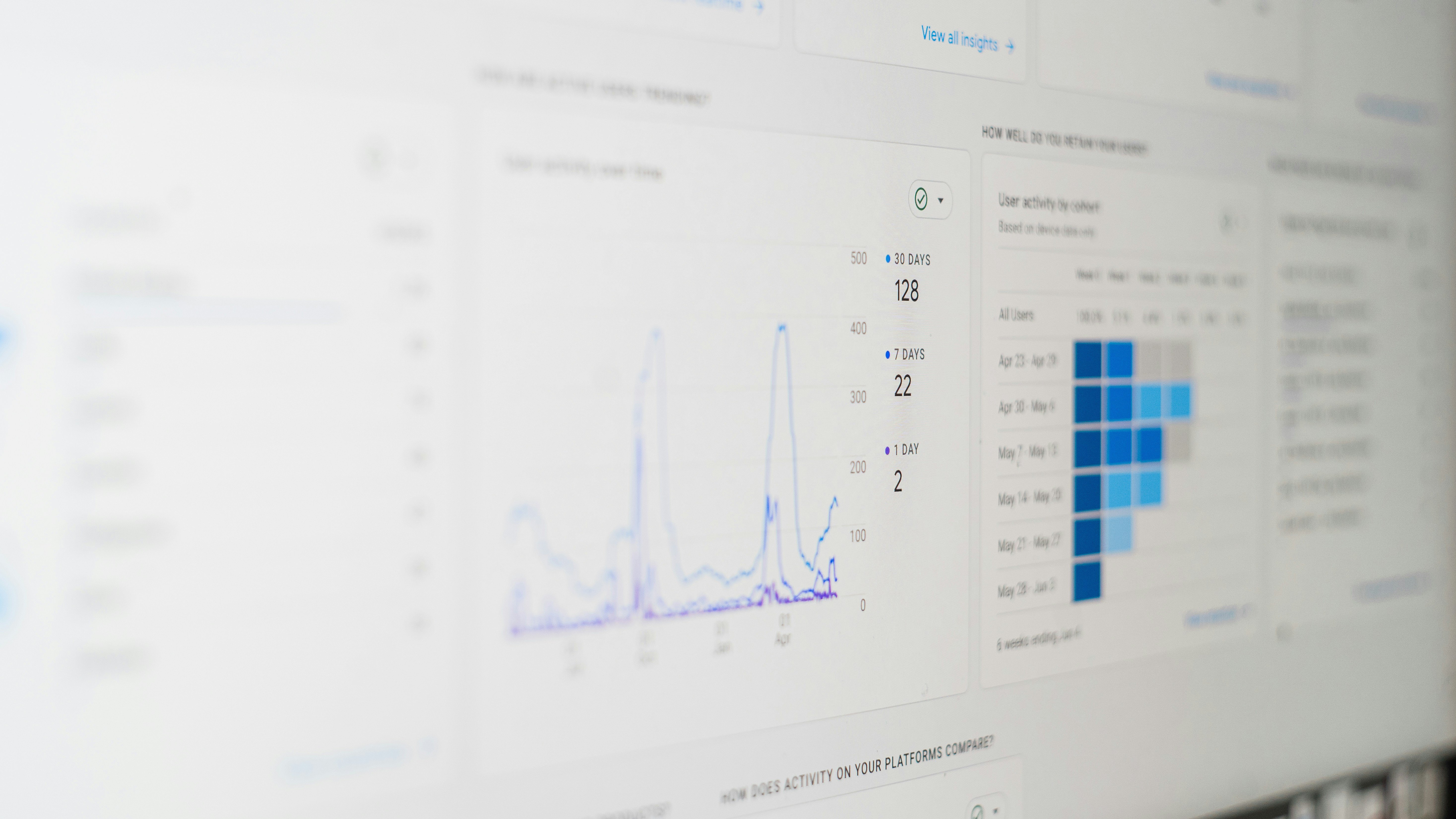SEO has evolved significantly. The old tactics of keyword stuffing and link building to achieve high rankings on Google are no longer effective. In today’s digital landscape, it’s crucial to produce content that aligns with your audience’s search intent, ensure it’s optimized for both user experience and technical performance, and stay vigilant with updates to adapt to algorithm changes.
This is where AI steps in.
Artificial Intelligence (AI), the capability of machines to execute tasks that typically require human intelligence, such as understanding natural language, recognizing patterns in images, and learning from data, is revolutionizing SEO. AI can significantly enhance your SEO strategy by generating content ideas, creating outlines, analyzing search results, and offering optimization suggestions.
In this article, we’ll explore how AI can elevate your SEO efforts and introduce you to some of the top AI tools for SEO in 2024.
The Evolution of SEO: From Keywords to AI

SEO, or search engine optimization, is the process of enhancing the quality and volume of website traffic through organic search results. Over the years, SEO has transitioned from a primary focus on keywords and links to a sophisticated integration of AI and understanding user intent.
In this section, we delve into the evolution of SEO and the pivotal role AI now plays in contemporary SEO strategies.
The Role of AI in Modern SEO
Artificial Intelligence (AI), the capability of machines to perform tasks requiring human intelligence, such as language comprehension, image recognition, and learning from data, significantly benefits SEO in several ways:
- Advanced keyword research: AI and its machine-learning capabilities can sift through vast data sets to suggest the most fitting keywords for a blog. It’s instrumental in targeting long-tail and semantic keywords that align with the user’s search intent.
- Content optimization: AI aids in generating content ideas and outlines tailored to the keywords and the audience’s preferences. It evaluates content based on readability, keyword density, length, and structure, providing recommendations for enhancements.
- SEO strategizing: AI analyzes the website’s and competitors’ performance, offering insights and suggestions for SEO campaigns. It predicts the outcomes of SEO actions and measures the ROI of these efforts.
- Website optimization: AI enhances user experience and technical performance by improving image and video SEO, voice search, schema markup, and site speed. It supports link-building strategies by identifying authoritative sources and crafting engaging content.
- AI tracking: AI monitors and updates the website to align with algorithm changes and user behavior trends. It provides predictive analytics, reporting, and analysis for SEO through data visualization and natural language generation.
As evident, AI is transforming SEO, enabling marketers to refine their strategies with unparalleled precision and efficiency. AI-powered SEO tools automate mundane tasks, offer valuable insights, and ensure websites remain adaptive to the ever-changing search engine algorithms and user preferences. In the following section, we will examine some of the top AI tools for SEO in 2024.
Key Benefits of AI in SEO

AI SEO tools offer numerous advantages for businesses aiming to boost their online presence and outshine competitors. This section will explore the key benefits of AI in SEO, including enhancing content relevance, automating mundane SEO tasks, and elevating user experience.
Enhancing Content Relevance with AI
For SEO success, it’s crucial to produce content that aligns with your target audience’s search intent. Search intent reflects the goal behind a user’s query, such as seeking information, comparing products, or making a purchase. AI can significantly improve your content’s relevance by:
- Analyzing search data to identify trends, patterns, and insights, thereby informing your content strategy. AI also uncovers gaps and opportunities in your niche, guiding you to craft content that addresses them.
- Discovering keywords related to your topics and optimizing them for different stages of the buyer’s journey. AI is instrumental in targeting long-tail and semantic keywords that resonate with the user’s search intent.
- Generating content ideas and outlines based on keywords and audience needs. AI aids in creating compelling headlines, meta descriptions, and calls to action that drive clicks and conversions.
- Assessing content quality and offering recommendations for enhancement. AI checks for readability, keyword density, length, and structure, providing optimization suggestions.
By leveraging AI to boost your content’s relevance, you can enhance your SERP rankings and meet your audience’s needs more effectively.
Automating Tedious SEO Tasks
AI in SEO also shines by automating the laborious and time-intensive tasks that SEO experts face. These tasks include:
- Link building and backlink analysis. AI identifies relevant and authoritative sources for linking and crafts content that garners backlinks. It also monitors and evaluates your backlink profile, pinpointing issues or opportunities.
- Technical SEO. AI enhances your website’s technical performance, focusing on image and video SEO, voice search, schema markup, and site speed. It detects and resolves technical issues like broken links, duplicate content, and crawl errors.
- SEO reporting and analysis. AI monitors and gauges your website and SEO campaign performance through data visualization and natural language generation, offering predictive analytics and insightful reporting.
Automating SEO tasks with AI saves time and resources, allowing you to concentrate on strategic and creative SEO elements and scale your efforts more effectively.
Improving User Experience (UX) through AI
A pivotal benefit of AI in SEO is its ability to enhance the user experience (UX) of your website and content. UX is vital as it influences user behavior on your site, affecting their stay duration, page visits, and actions.
AI boosts your website and content’s UX by:
- Personalizing content to match user preferences, behaviors, and context, and creating dynamic, interactive content that responds to user feedback.
- Optimizing content for various devices and platforms, ensuring responsive and mobile-friendly content that performs seamlessly across different screen sizes and browsers. AI also tailors content for platforms like social media, email, and chatbots.
- Enhancing content with multimedia and visual elements. AI assists in creating and optimizing images, videos, audio, and graphics, making content more engaging and visually appealing. It also generates captions, transcripts, and alt text for multimedia content.
Improving your website and content’s UX with AI can lead to higher engagement, retention, conversion rates, and bolster your brand’s loyalty and reputation.
Breaking Down the Best AI Tools for SEO

Exploring the landscape of AI in SEO, we delve into a curated selection of the top AI tools poised to revolutionize SEO strategies in 2024. These tools, distinguished by their unique features and benefits, cater to various aspects of SEO, from content generation to technical audits.
Content Creation and Optimization Tools
At the heart of SEO, content creation and optimization tools leverage AI to enhance your content’s relevance and performance. These innovative tools assist in brainstorming topics, identifying keywords, crafting outlines, and writing content that’s optimized for readability, structure, and keyword density.
Highlighting the forefront of innovation, we have:
- Jasper: A versatile content generator, Jasper excels in producing compelling content across blogs, social media, and websites. It supports diverse writing styles and formats, offering SEO optimization features like keyword suggestions and meta tags.
- Surfer SEO: A content intelligence powerhouse, Surfer SEO provides insights to craft content that ranks well, offering recommendations on length, structure, and keyword integration, along with content outline generation.
- Frase: Frase stands out for its ability to research, write, and optimize content aligned with SEO and user intent. It analyzes search results to furnish relevant information and questions, ensuring content matches search intent.
Keyword Research and Analysis Tools
Essential for refining SEO strategies, keyword research and analysis tools help discover and scrutinize optimal keywords. They aid in uncovering keyword opportunities, evaluating keyword competition, and monitoring keyword performance.
Leading the charge in this category are:
- Semrush: An all-encompassing SEO toolkit, Semrush offers extensive features for keyword discovery and analysis, including insights on keyword difficulty, search volume, and tracking across various devices.
- Ahrefs: Known for its comprehensive keyword research capabilities, Ahrefs provides a wealth of ideas and metrics, facilitating a deep dive into keyword competition and performance tracking.
- Outranking: A pioneering AI tool, Outranking specializes in keyword optimization, analyzing search intent and user behavior to recommend relevant keywords and content optimization strategies.
Technical SEO and Site Audits
Technical SEO and site audit tools focus on enhancing your website’s technical health and performance. They cover a broad spectrum of tasks, including improving SEO for images and videos, voice search optimization, and identifying technical issues like broken links and duplicate content.
Top tools in this segment include:
- NitroPack: A comprehensive solution for speed optimization, NitroPack boosts website performance through automatic optimizations and enhances scores on Google PageSpeed Insights.
- Alli AI: This tool streamlines SEO automation, offering actionable insights for improving technical and on-page SEO, and facilitates the implementation of SEO tasks.
- Diib: Diib excels in website analysis, offering detailed reports on website health and performance, alongside recommendations for technical improvements and traffic growth.
Link Building and Outreach
Link building and outreach tools are pivotal in acquiring high-quality backlinks. These tools streamline the process of identifying link-building opportunities, creating backlink-worthy content, and conducting outreach campaigns.
Standouts in this category are:
- Pitchbox: An influencer outreach platform, Pitchbox utilizes AI to identify optimal prospects for link-building, enhancing outreach efforts with personalized emails and tracking.
- BuzzStream: BuzzStream aids in building relationships with influencers and bloggers, facilitating research, outreach, and performance analysis for link-building campaigns.
- Linkio: Specializing in link-building management, Linkio offers a data-driven approach to strategize your link-building efforts, including recommendations on anchor texts and link sources.
These AI tools represent the pinnacle of SEO optimization in 2024, offering a broad spectrum of solutions tailored to enhance your SEO strategy and outcomes. Embracing these tools can significantly impact your SEO efforts, aligning with your objectives, budget, and aspirations.
In the subsequent section, we’ll explore the integration of AI into your SEO strategy and the expected outcomes.
Implementing AI in Your SEO Strategy

Integrating AI into your SEO strategy can significantly enhance its effectiveness, but the real question is: how can you do it effectively? In this guide, we’ll walk you through essential steps and tips for incorporating AI into your SEO efforts. This includes selecting the appropriate AI tools tailored to your needs and accurately measuring the success of AI-powered SEO enhancements.
Evaluating The Right AI Tools For Your Needs
As previously discussed, the market is flooded with a variety of AI SEO tools, each boasting its own set of features and benefits. However, not every AI SEO tool will be a fit for your specific requirements, objectives, and budget. To choose the right AI tools for your SEO strategy, consider the following criteria:
- Functionality: Assess the core functions and capabilities of the AI SEO tool. Determine whether it supports your SEO needs, including content creation, keyword research, technical SEO, or link building. Look for any unique or innovative features that set it apart from competitors.
- Accuracy: Evaluate the reliability and precision of the AI SEO tool’s results and recommendations. Check if it leverages credible, up-to-date data sources and algorithms, and provides evidence to back its suggestions.
- Ease of use: Ensure the AI SEO tool is user-friendly, with an intuitive interface and design. It should offer comprehensive tutorials, guides, or user support.
- Integration: Consider how well the AI SEO tool integrates with your existing SEO tools and platforms. Look for APIs, plugins, or extensions that facilitate seamless data and workflow integration.
- Cost: Analyze the cost of the AI SEO tool and the available payment options. Check for free trials, demos, or discounts that could provide value for money and a good return on investment.
By evaluating AI SEO tools against these criteria, you can narrow your options and select the most suitable tools for your SEO strategy.
Measuring Success with AI-enhanced SEO
After implementing the chosen AI SEO tools, it’s crucial to measure the success and impact of your AI-enhanced SEO efforts. While similar to traditional SEO success measurement, AI-enhanced SEO introduces additional factors and metrics to consider, such as:
- Performance: Assess how the AI SEO tool meets or surpasses your SEO goals, such as increased traffic, rankings, conversions, and revenue.
- Efficiency: Determine the time and resources the AI SEO tool saves or optimizes for your SEO strategy. Evaluate its ability to automate and streamline SEO tasks, reducing manual errors and efforts.
- Insights: Consider the insights and learnings provided by the AI SEO tool for your SEO strategy. Look for features like data visualization, natural language generation, or predictive analytics that aid in understanding and enhancing your SEO performance.
- Adaptability: Evaluate how well the AI SEO tool adapts to the ever-changing SEO landscape and user behaviors. Ensure it stays updated with algorithm changes and search trends, offering optimization and innovation feedback.
By assessing the effectiveness and value of your AI SEO tools and strategy based on these factors, you can ensure a successful integration of AI into your SEO efforts.
Future Trends: AI and SEO

AI is not only transforming the present of SEO, but also shaping its future. As AI technologies become more advanced and accessible, they will create new opportunities and challenges for SEO professionals and businesses. In this section, we’ll explore some of the future trends of AI and SEO that you need to be aware of and prepare for.
Some of the future trends of AI and SEO are:
- Natural Language Generation: AI systems will likely evolve to become content generators, producing human-like writing tailored to specific search queries with unparalleled efficiency. This will enable businesses to create large volumes of high-quality and relevant content for SEO purposes, as well as for other digital marketing channels, such as email, social media, and chatbots. However, this will also raise ethical and legal issues, such as plagiarism, authenticity, and accountability.
- Video and Visual Search Optimization: As more users prefer to consume and search for visual content, such as images and videos, AI will play a crucial role in optimizing them for SEO. AI will help create and optimize images, videos, audio, and graphics that complement the textual content and make it more engaging and appealing. AI will also help generate captions, transcripts, and alt text for multimedia content, as well as structured data and schema markup to enhance their visibility and relevance on SERPs.
- Voice Search: Voice search is already a popular and convenient way for users to interact with search engines, especially on mobile devices and smart speakers. AI will help improve the accuracy and naturalness of voice search, as well as the quality and diversity of voice search results. AI will also help optimize content for voice search, using factors such as conversational tone, long-tail keywords, and semantic keywords.
- Personalization: AI will help deliver more personalized and customized content and experiences for users, based on their preferences, behavior, and context. AI will also help create dynamic and interactive content that adapts to the user’s needs and feedback. This will increase user engagement, retention, and conversion rates, as well as brand loyalty and reputation.
- Predictive Analytics: AI will help provide predictive analytics, reporting, and analysis for SEO, using data visualization and natural language generation. AI will also help provide insights and suggestions for SEO campaigns, such as the best keywords, content, and links to target, as well as the expected outcomes and impacts of SEO actions. This will help SEO professionals make data-driven decisions and measure the ROI of their SEO efforts.
These are some of the future trends of AI and SEO that will redefine the way we approach SEO in the coming years. By staying ahead of these trends and leveraging the best AI tools for SEO, you can gain a competitive edge and achieve your SEO goals.
Conclusion
AI is a game-changer for SEO. It can help you improve your SEO strategy and results in many ways, such as creating and optimizing content, finding and analyzing keywords, improving technical SEO and site audits, and building and acquiring links. AI can also help you automate tedious SEO tasks, provide data-driven insights, and adapt to changing SEO trends and user behavior.
However, AI is not a magic bullet that can solve all your SEO problems. You still need to have a clear SEO goal, a solid SEO plan, and a human touch to make your SEO efforts successful. You also need to choose the best AI tools for your SEO needs, goals, and budget, and use them wisely and ethically.
If you want to take your SEO to the next level, you need to embrace AI and its benefits. AI can help you create better content, rank higher on search engines, and grow your online presence and business. Don’t miss this opportunity and start using AI for your SEO today.
